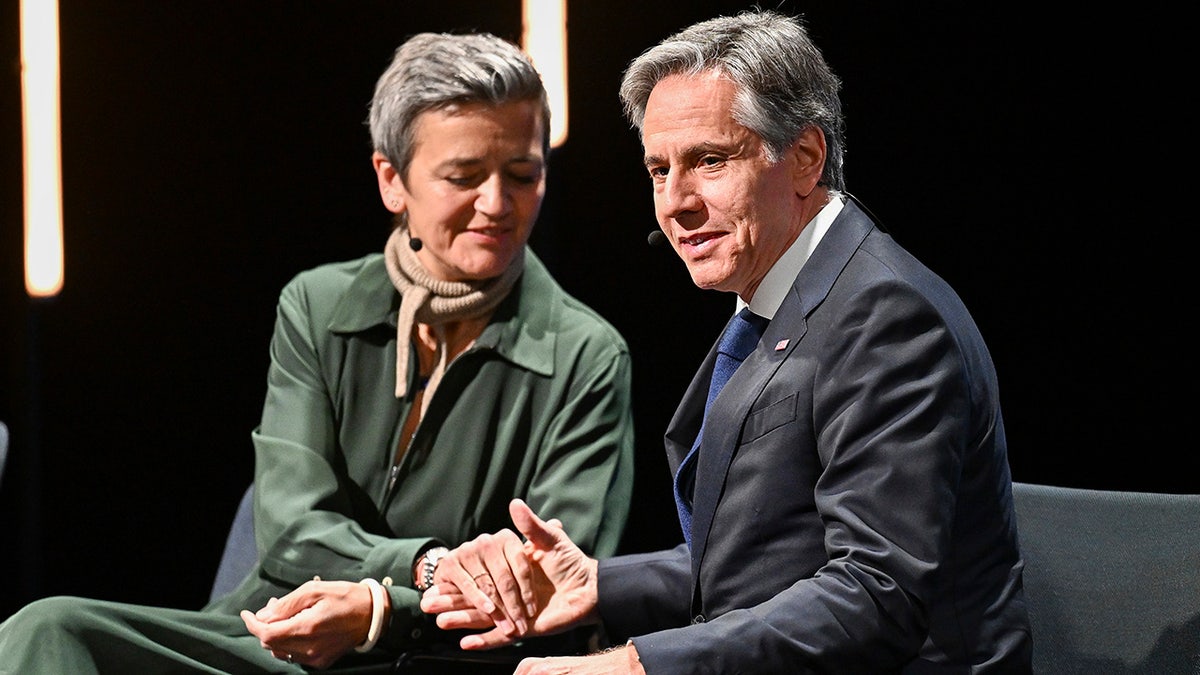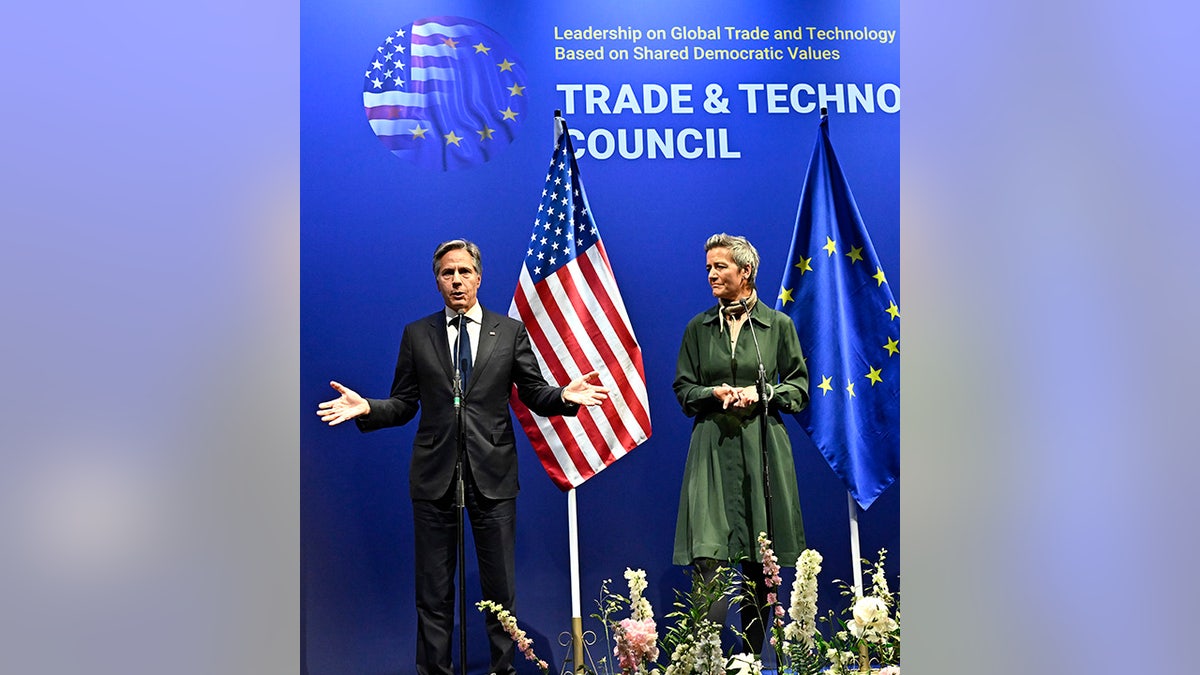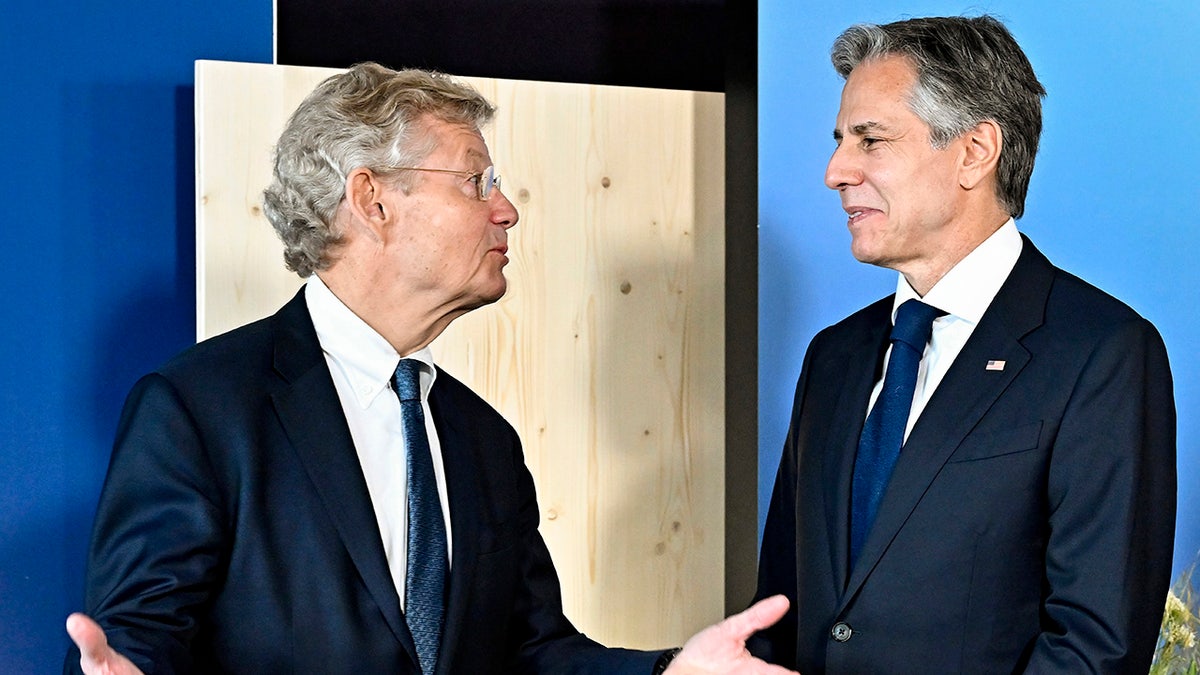Experts warn artificial intelligence could lead to 'extinction'
Center for AI Safety Director Dan Hendrycks explains concerns about how the rapid growth of artificial intelligence could impact society.
Secretary of State Antony Blinken said Wednesday that the U.S. is working with its European allies to develop a conduct code for artificial intelligence.
Blinken is in Sweden for a meeting of the EU-U.S. Trade and Technology Council, which is jointly led by American and European officials.
"We need accountable artificial intelligence. Generative AI is a complete game changer," European Commission Vice President Margrethe Vestager said at a press conference after the meeting, saying a draft of a voluntary code of conduct for artificial intelligence would be ready within a matter of weeks.
The council has "an important role to play in helping establish voluntary codes of conduct that would be open to all like-minded countries," Blinken said, according to The Associated Press.
HERE IS HOW EUROPE IS PUSHING TO REGULATE ARTIFICAL INTELLIGENCE AS CHATGPT RAPIDLY EMERGES

European Commission Vice President Margrethe Vestager shakes hands with Secretary of State Antony Blinken during an event in Lulea, Sweden, on Wednesday. (Jonas Ekstromer/TT News Agency via AP)
Blinken relayed at the press conference his "intensive and productive" discussion on artificial intelligence with his European counterparts, Reuters reported.
Vestager said officials will seek feedback from industry players, invite parties to sign up, and promised "very, very soon a final proposal for industry to commit to voluntarily."
The breathtaking rise of generative AI systems such as ChatGPT has dazzled users with their capability to mimic human responses while stirring fears about the risks they pose, setting off a global debate about how to design guardrails for the technology.

Antony Blinken and Margrethe Vestager appear during a final press conference at a Trade and Technology Conference in Lulea, Sweden, on Wednesday. (Jonas Ekstromer/TT News Agency via AP)
EUROPEAN LAWMAKERS LOOK TO REIN IN HARMFUL EFFECTS OF AI
Scientists and tech industry leaders, including high-level executives at Microsoft and Google, issued a new warning Tuesday about the perils that artificial intelligence pose to humankind.
"Mitigating the risk of extinction from AI should be a global priority alongside other societal-scale risks such as pandemics and nuclear war," the statement said.

Jacob Wallenberg, chairman of the Swedish Confederation of Business and Industry, shares a word with Secretary of State Antony Blinken in Lulea, Sweden, on Wednesday. (Jonas Ekstromer/TT News Agency via AP)
Sam Altman, CEO of ChatGPT maker OpenAI, and Geoffrey Hinton, a computer scientist known as the godfather of artificial intelligence, were among the hundreds of leading figures who signed the statement posted on the Center for AI Safety’s website. It also suggested AI should be regulated by the U.S. or an international agency.
The EU is at the forefront of the global movement to regulate artificial intelligence with its sweeping AI Act. The legislation is set for final negotiations, with political approval expected by year's end. But those rules won't take effect for two to three years "in the best possible case," while AI technology is developing "by the month," Vestager said.
The Associated Press contributed to this report.














































